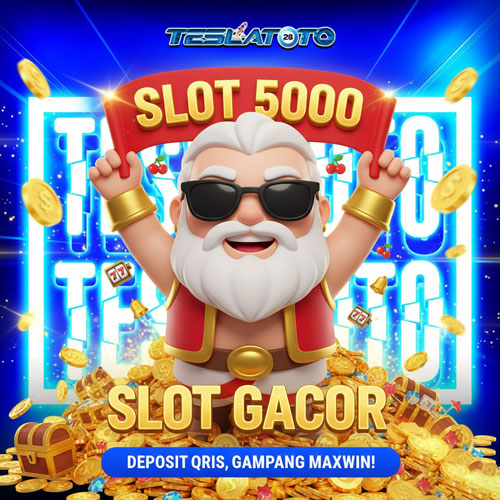
Beneath the surface of Indonesia’s vibrant digital economy, a parallel ecosystem thrives, one that operates in the shadows of legality yet leverages the full force of modern marketing and financial technology. At the forefront of this clandestine world is TESLATOTO, a name that has become synonymous with a new, aggressively accessible form of online gambling. This platform is not a mere website; it is a sophisticated engine designed to capitalize on technological adoption and economic aspiration, presenting a complex challenge to regulators and a profound risk to a generation of tech-savvy Indonesians.
Engineering Accessibility for the Mass Market
The fundamental architecture of TESLATOTO is built upon a single principle: the elimination of friction. The platform serves as a gateway to digital slot machines and sports betting, but its genius lies in its hyper-localized execution. Every element is tailored for the Indonesian market. The language is colloquial Indonesian, the customer support operates on local time, and, most critically, it integrates the nation’s most popular payment channels. By accepting deposits via OVO, DANA, GoPay, and direct bank transfers, TESLATOTE seamlessly inserts itself into the daily financial rituals of millions. The act of transferring funds to a gambling site becomes indistinguishable from topping up one’s phone credit or paying for a motorbike ride, effectively normalizing a behavior that the state deems illegal and socially harmful.
The QRIS 5000 Gateway and the Psychology of the Small Bet
The most potent marketing tool for TESLATOTO is its relentless promotion of “Slot Deposit QRIS 5000.” This strategy is a masterstroke of behavioral psychology. QRIS, the national QR code standard, represents trust, modernity, and convenience. By adopting it, the platform borrows this legitimacy. The stipulated amount of 5,000 Rupiah is the key. This sum is so small it falls below the threshold of serious financial consideration for many. It is the price of a street snack or a small coffee. This micro-transaction model is deliberately designed to disarm the user’s innate risk assessment. The initial deposit is not meant to be profitable for the platform; it is meant to be a hook. It initiates the user into the system with minimal resistance, fostering a habit where the focus shifts from the amount of money being spent to the thrill of the game itself, paving the way for escalated spending.
The Myth of the “Gacor” Slot and Manufactured Wins
TESLATOTO does not merely offer games; it sells a narrative. The platform prominently features software from major global providers like Pragmatic Play and Habanero, but its marketing language is distinctly local. It heavily relies on slang terms such as “Gacor,” implying certain slot games are hot and paying out frequently, and “Maxwin,” which paints a picture of life-changing jackpots being routinely won. This vernacular creates a powerful illusion. It suggests that winning is not a matter of random chance but of strategic selection, that some players have insider knowledge on which machines are “loose.” This narrative preys on the human tendency to find patterns in randomness, convincing users that they can game the system if they are just smart enough, thereby encouraging prolonged play and deeper investment.
The Regulatory Quagmire in a Digital Age
The existence of TESLATOTO highlights a critical failure in the enforcement of Indonesia’s strict gambling laws. The government’s efforts to block such sites are a constant but ultimately flawed endeavor. Operators like TESLATOTO employ mirror sites, virtual private networks, and rapidly changing domain names to evade detection and filtering. This creates a frustrating cycle where authorities shut down one domain, only for another to appear hours later. The very technologies that empower Indonesia’s digital growth—high-speed internet, encrypted communications, and digital finance—also empower these illicit operations. This regulatory quagmire leaves citizens exposed, relying on individual discernment to navigate a landscape flooded with professionally crafted, deceptive offers.
The True Stakes of the Digital Gamble
The ultimate cost of TESLATOTO’s operation is borne by individuals, families, and society at large. While the entry point is a trivial 5,000 Rupiah, the psychological design of slot machines is engineered to encourage addiction. The convenience of instant deposits via e-wallets can lead to a rapid and desensitized loss of funds, spiraling into significant debt. Moreover, as an illegal operation, TESLATOTO offers zero consumer protection. Users have no assurance of fair play, no guarantee of withdrawn winnings, and no legal recourse in case of fraud. Their personal and financial data is held by unaccountable entities, risking privacy and security. TESLATOTO is thus a stark symbol of a broader societal threat, where advanced technology is harnessed not for empowerment, but for predatory exploitation, leaving a trail of financial and social ruin in its wake.





